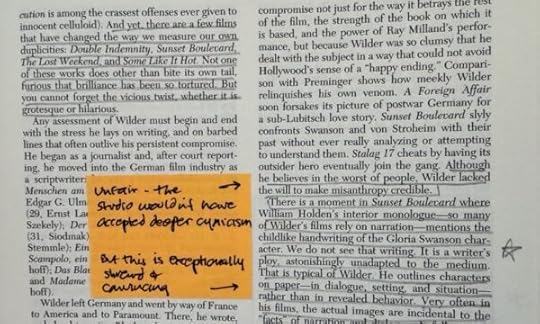call and response


If my house caught fire and I could only rescue a few books, this would be among the first I’d grab.
Thomson published the first edition of this tome in 1975, and has described how it happened in this 2023 interview:
I worked for a Penguin Books for a time, and I knew a guy in publishing in London. He said to me one day, “You seem to know more about film than anyone I know.” It was an age, in the early seventies, when there was a huge interest in world cinema. All the New Waves had broken on the shore, and this changed everything. People who had grown up thinking that you went to the pictures or the movies once a week suddenly realized that there was a vast climate of films, often made by young people and more cheaply than in the past, that were as lively and compelling as the best books, the best music, or the best paintings.
This guy proposed, “Why don’t you write a book that describes the whole picture?” It was intended at first to be an encyclopedia, but as it developed, it became a biographical dictionary. I showed it to him as a work in progress, and he said, “No, that’s good. Keep it up. Keep going.” He said at the time, I remember, “What I like about it is that there’s a passion or opinionated feeling to it. Don’t lose that. Don’t make it a calm, objective, academic book. Make it a passionate, personal book. Make it a book that angers people sometimes. Go for what you really feel.” That’s just what I did, and initially that upset some people.
“Opinionated” is putting it mildly — but the editor was exactly right that such a tone was valuable. Thomson only gets a few hundred words for each of the entries, fewer in some cases, more for the giants. (The book’s cast includes — in descending order of dominance — actors, directors, producers, screenwriters, and just a couple of composers and cinematographers. The neglect of the people who handled the photography is the greatest flaw in the book.) In such circumstances, the bold capsule assessment is infinitely more valuable than the dry resumé. “Upsetting some people” is a feature, not a bug.
As I read — and I have this book on my lap often, flipping back and forth as one entry reminds me of another — I find myself alternately applauding Thomson’s acuity and deploring his obtuseness. But I am always engaged — it’s a kind of call and response: Thomson calls and I respond.


And then of course I go back to the movies to prove to myself that I’m right and he’s wrong. He’s more wrong about Billy Wilder than about anyone else — I’m hoping that the publisher chose the cover image from a Wilder movie just to spite Thomson — and since I wrote the comment above I’ve decided that I’m not as convinced by his emphasis on Wilder’s writerliness as I was. (Though Wilder did indeed call himself a writer, not a director.)
I doubt that there’ll be another edition; this one is eleven years old, and Thomson is 84 now — though still writing, and producing a book just about every year, so who knows for sure? This sixth edition needed more editing: for instance, the text sometimes describes a person as still active whose death date is recorded at the top of the entry. I imagine that the work involved in properly updating a book this big — 1154 pages — is daunting. A seventh edition would surely have to run to 1400 pages or more. Should one appear, I’ll probably buy it; but the one you see here will continue to be my companion. What a wonderful and endlessly illuminating, as well as exasperating, book.
Alan Jacobs's Blog
- Alan Jacobs's profile
- 533 followers



